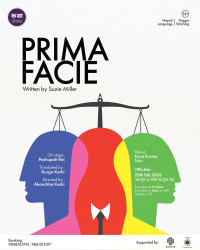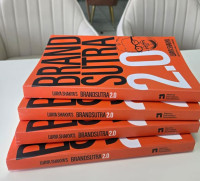Culture & Lifestyle
Why is holding a book like holding a hand?
The struggle begins with the simple question: What do I pick up first, the phone or the book?
Augustine Thomas SJ
Not long ago, I was listening to a friend describe how life had unfolded for him. After facing a major setback in his business and professional life, he was searching for a new direction. In our conversation, I mentioned Anthony de Mello’s book ‘Awareness’. A few days later, after reading just a few pages, he sent me a message, “This book is doing bibliotherapy for me.”
Until then, I had never thought of a book in that way. Could a book really be therapeutic?
It turns out, yes. Bibliotherapy is the idea that a book can act like a healer, almost like a therapist. The words on the page can reach into hidden corners of the heart and bring out thoughts or emotions we didn’t know how to express. The author may never know us, yet the book can feel like it was written just for us. A book can comfort, challenge, and even awaken something within.
Books plant seeds
When we finish a book, most of it slips away. We don’t remember every chapter or every detail. But usually, one line, one metaphor, or one small insight lingers. And that small piece can work like a seed. Without our noticing, it takes root and reshapes how we think or act.
Take Paulo Coelho’s ‘The Alchemist’. Many readers don’t recall the entire storyline, but almost everyone remembers the line, “When you want something, all the universe conspires in helping you to achieve it.” That single thought has inspired countless people to chase dreams they once kept buried. One sentence was enough to spark courage.
There’s also something irreplaceable about holding a printed book. Yes, e-books are convenient, but many still prefer the real thing. Reading is not only about the eyes, but also about touch and presence. Turning pages, underlining sentences, or returning to a folded corner where something stirred us makes the process deeply personal. Borrowing a book from a friend and noticing the lines they underlined can even reveal their inner world and personal journey.
Holding a book feels like holding a hand. It gives us presence and companionship in a way a screen never can.
When books trigger awareness
I still remember reading Eckhart Tolle’s ‘A New Earth’. The book explained how the ego works so thoroughly that I began to notice it in my everyday life. Whenever I felt defensive, compared myself to others, or needed to be right, I heard a little bell ring inside me. Awareness had been triggered, and with that awareness came the chance to pause and choose my response.
This was not about memorising theories. The book had planted a living seed. Slowly, I found myself reacting differently. Instead of irritation, there was a pause, sometimes even a smile at the ego’s tricks. The book was no longer “outside” of me. It had become a companion, a voice that whispered reminders at just the right moments.
That is the beauty of a “book trigger.” The words leap beyond the page and weave themselves into our nervous system. Unlike the fleeting triggers we get from scrolling on a mobile phone, where an image or notification provokes us to react impulsively, book triggers invite us into stillness and reflection. They don’t demand attention. They awaken it.
Windows and mirrors
Books can also be companions in times of loneliness. In Haruki Murakami’s novels, like ‘Norwegian Wood’, readers often find solace in characters who grapple with isolation, grief, and longing. The story does not “fix” loneliness, but it gives words to what often feels inexpressible. A book can sit with you in silence when no person can.
Some books give us the courage to face life’s deepest truths. For instance, Mitch Albom’s ‘Tuesdays with Morrie’ leads readers into contemplating mortality and meaning. Anne Frank's ‘The Diary of a Young Girl’ makes us confront injustice and resilience through the eyes of a child. Books create a safe space to face life’s hardest questions without shame or fear.
Beyond just touching emotions, books also expand the mind. Yuval Noah Harari’s ‘Sapiens’ gives us a broader perspective on how we think about history, evolution, and the future of humanity. Adam Grant’s ‘Think Again’ triggers in us the power of letting go of outdated beliefs and opens new possibilities for growth and decision-making. Novels like Chimamanda Ngozi Adichie’s ‘Half of a Yellow Sun’ or Khaled Hosseini’s ‘The Kite Runner’ transport us to cultures, wars, and struggles we might never experience firsthand.
Books are windows that show us other lives. But they are also mirrors that reflect parts of ourselves we may not have noticed.
Mental exercise
Reading is not only food for the heart; it is exercise for the brain. Research shows that reading strengthens focus, builds vocabulary, and keeps the mind active even in old age. If Sudoku is like light jogging for the brain, then Dostoevsky’s ‘The Brothers Karamazov’ is heavy lifting. Complex sentences force the brain to stretch and grow stronger.
Many great leaders point to books as their teachers. Nelson Mandela found guidance in the writings of Gandhi and Tolstoy. Steve Jobs often returned to ‘Autobiography of a Yogi’ for inspiration.
Books, then, are not lifeless objects. They are living presences. The right book at the right time can shift the direction of a life.
The villain: cheap dopamine
Of course, there is a villain here, and it comes in the form of digital entertainment. We live in an age where every notification tries to steal our attention. The struggle begins with the simple question: What do I pick up first, the phone or the book? If I pick up the phone, the flood of quick entertainment usually wins. But if I pick up the book, it keeps me, and pulls me deeper into page after page. For instance, reading ‘The Power of Now’ by Eckhart Tolle does not excite the brain in short bursts but slowly teaches us presence.
Science tells us that reading doesn’t just pass the time. It rewires the brain. Engaging with books from an early age strengthens pathways that support creativity and comprehension. Even for those with reading difficulties like dyslexia, targeted reading can reshape brain connectivity.
The real choice is between cheap dopamine and rich dopamine. Cheap dopamine comes from endless scrolling and quick laughs. It feels good for a moment, but leaves the mind scattered. Rich dopamine, the kind that comes from reading and reflecting, takes more effort but lasts longer. It builds new connections in the brain and leaves us refreshed rather than drained.
Reading can even become a ritual. Think of brewing a cup of coffee, sitting near a window, and turning pages slowly. That rhythm itself feels therapeutic. It is one of the few acts in our modern life where we slow down intentionally. A book is an atmosphere, a pause, and a little island of calm in the middle of chaos.
A habit that lasts a lifetime
Back in school, we had a rule: every student must carry a novel in the bag at all times. Looking back, it was not merely a rule. It was the start of a habit.
Many of us still keep a book by our bedside or on our work desk—not because we are required to, but because we want to. What started as a rule in school has grown into a healthy habit—or one might say, a love for reading. The companionship of a book has matured with us, and for many, it has become a part of our daily lives.
Books are not just objects of leisure. They are companions, teachers, therapists, and sometimes even saviours. Perhaps the real question is not what a book does to you, but what you allow it to awaken in you. Every book you open is, in the end, also opening parts of you.
_____
Thomas is the principal at St Xavier’s College, Maitighar.




 12.12°C Kathmandu
12.12°C Kathmandu















